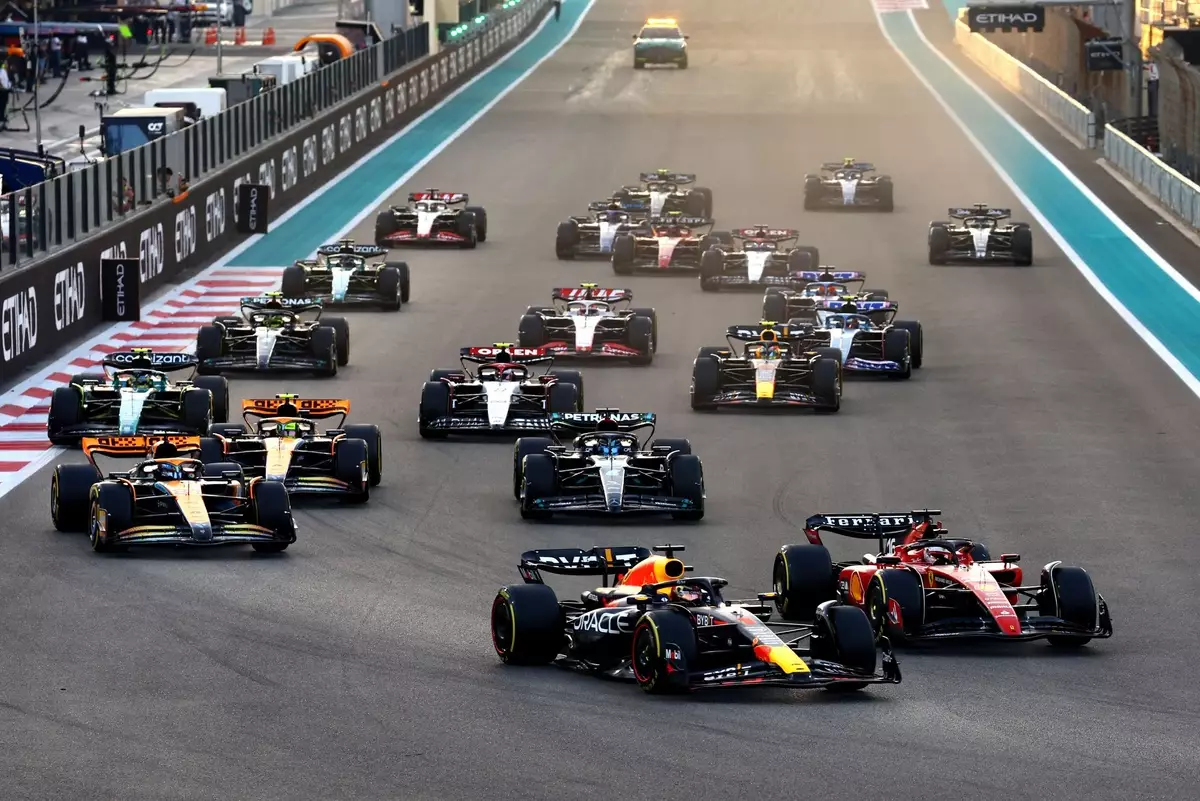Formula 1 is constantly evolving, with stakeholders regularly brainstorming innovative ways to enhance the sport. One exciting concept proposed was the introduction of a rookie sprint race during the off-season Abu Dhabi test. This initiative sought to provide fresh talent with the opportunity to gain valuable experience in modern F1 cars. However, logistical challenges ultimately derailed these plans, leading to a decision to postpone the event until more favorable conditions could be established in 2025. This situation raises questions about the sport’s ability to effectively integrate new ideas and adapt to its ever-changing landscape.
At first glance, the implementation of a rookie sprint race seemed a game-changing initiative. With the overwhelming support of major stakeholders, the plan was to host a 10-car event on the Tuesday following the Abu Dhabi Grand Prix. This idea gained momentum as it showcased a commitment to nurturing fresh talent in the highly competitive realm of Formula 1. The blueprint outlined preliminary plans, including a qualifying session and a subsequent sprint race, seamlessly fitting into the day already dedicated to Pirelli tire testing.
Given the high stakes of F1, introducing a dedicated rookie event embodies a forward-thinking approach to talent development. It could potentially act as a testing ground for aspiring drivers, equipping them with crucial experience and promoting diversity within the sport. However, despite the enthusiasm surrounding the initiative, it became evident that the limited timeline posed significant challenges.
As discussions progressed during a meeting of the F1 Commission, a consensus emerged that attempting to execute the rookie sprint race within the existing two-month timeframe would likely lead to an array of logistical issues. The operational complexity of hosting a non-standard event in an already packed calendar illustrated the delicate balance between ambition and feasibility. It highlighted how even well-supported ideas could falter under the pressure of time constraints and organizational limitations.
The decision to revisit this proposal in 2025 is not just a setback but reflects a strategic pause, allowing stakeholders more time to refine and enhance the concept. United in a shared purpose, F1 and the FIA have opted for a more thorough approach, underscoring the importance of effective planning in executing new initiatives.
In addition to the rookie race discussions, the commission met to address forthcoming changes to the technical regulations set to take effect in 2026. The ongoing discourse surrounding the aerodynamic performance of future F1 cars demonstrates the sport’s ever-evolving nature. Teams expressed concerns about the initial proposals, prompting the FIA and the Technical Advisory Committee to collaborate closely in refining the regulations.
Adjustments made to the 2026 cars indicate a proactive approach to performance enhancement while maintaining safety for drivers as the sport pushes the boundaries of technology. This collaborative spirit showcases a commitment to balancing innovation with caution, answering teams‘ concerns, and ensuring competitiveness within the sport remains paramount.
The idea of a rookie sprint race may have been tabled for now, but it opens the door for alternative solutions. F1’s landscape is ripe for innovation, and stakeholder engagement will be crucial in addressing the limitations faced during the original plan. There’s a possibility of integrating test sessions more directly into the racing calendar, perhaps allowing for a mix of experienced drivers and rookies to share the track, thereby fostering mentorship.
Furthermore, given the complexities surrounding the rookie sprint race, ensuring that organizational infrastructures are agile enough to accommodate future experiments will be vital. As the sport continues to prioritize a sustainable and competitive environment, finding creative avenues to nurture new talent will need to remain at the forefront of F1’s strategic planning.
Ultimately, the decision to postpone the rookie sprint race reflects both the challenges and the opportunities inherent in Formula 1. While logistics and time constraints thwarted the immediate plan, the collaborative effort of the stakeholders signals a willingness to adapt and improve. In the long run, this situation could serve as a valuable learning experience, laying the groundwork for more robust initiatives that could revolutionize how future talents are integrated into one of the world’s most prestigious sports. The road ahead remains open and hopeful as Formula 1 continues to navigate its complex landscape with a focus on innovation, talent development, and competitive balance.


Napsat komentář